Burengiin Nuruu Mountain Range

History of the Peace Corps Program in Mongolia
Country Assignment
- Country: Mongolia (Outter)
- Program: Youth Development
- Job Title: Life Skills Trainer (also: English teacher, Child Caretaker, Fund Raiser, Events Organizer, and IT Trainer)
- Orientation (Staging in Atlanta, GA): May 31-June 2, 2007
- Pre-Service Training (in Darkhan and Sukhbaatar, Mongolia): June 3-August 18, 2007
- Dates of Service (in Darkhan at Sun Children formerly "Asian Child Foundation" - a non-profit, non-government Japanese funded orphanage of 37 Mongolian children opened since 8/25/2005): August 19, 2007- August 18, 2009
Location and Nature of the Job
CYD Volunteers are placed in provincial centers with population between 15,000 and 70,000. A few CYD Volunteers are placed in Ulaanbaatar, where the population is reaching 1 million. I will work with youth-focused NGOs, children’s centers, schools, and civil society organizations to address major challenges confronting Mongolian youth today, such as education, life skills, employability, and leadership. In addition, the work will involve workshops and presentations at schools and community agencies and will entail traveling to other outlying communities that have less access to information and training. Given the vast distances in Mongolia, these visits will often require overnight stays.
Tuesday, July 31, 2007
A Cultural Miscommunication
Representing the Peace Corps as an American only highlights my identity insecurities. Ironically, it is not the native Mongolians in this country that raise such issues to the surface but my fellow American PCTs. Maybe it is my young looking face and short twenty-seven years that makes them lump me into the same group experience category as themselves. I wouldn’t mind this inaccuracy too much if it didn’t cause problems, but, as it was in the States and amplified here in Mongolia, this inaccurate label is the root of some of my communication problems.
Nowadays, I speak English without an accent, comprehending the language my in a way my parents still do not. Nonetheless, as a habit of learning English as a second language, I interpret what people say literally and ask many questions to clarify meaning. But English is a tricky language. There are hidden meanings behind the literal words that a native speaker expects another native speaker to understand. And when I don’t, I am quickly tagged as dim-witted and promptly laughed at or worse, made an enemy. A former boyfriend once accused me of “not listening” – a phrase I have heard uttered more frequently in the past two months. My attempt at clarification only causes frustration on the side of the ‘real’ native speaker and such situations usually end in dust clouds of hasty departures.
How ironic is it that in a foreign country, half way around the world from the place that I call home, do I feel more comfortable and accepted then when I’m with fellow Americans.
Recommended Books on Mongolia
- “Dateline: An American Journalist in Nomad’s Land” by Michael Kohn, 2006.
- "Ghengis Khan and the Making of the Modern World” by Jack Weatherford, 2004.
- “Riding Windhorses” by Sarangerel, 2000.
- “Twentieth Century Mongolia” by Baabar, 1999.
Recommended Mongolian Movies
- The Story of the Weeping Camel (2004), Die Geschichte vom Weinenden Kamel
- Mongolian Ping Pong (2005), Lü cao di
Notable Articles on Mongolia
Informational Links
- Peace Corps - Mongolia
- International Calling Card (Cheap!)
- Current Mongolian News
- Current Weather Conditions in Ulannbaatar, Mongolia
- A Tour of Mongolia Through Photography
- History of Mongolia
- Mongolian Culture
- Mongolian Lanuage
- Weather and Climate In Mongolia
- Travel Guide to Mongolia
- Official Tourism Website of Mongolia
- Asia.com - Cheapest Airfare to Asia
- MIAT - Mongolian Airlines
- Currency Converter
- Entry and Visa Requirements





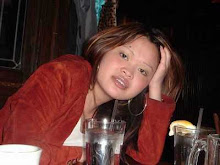



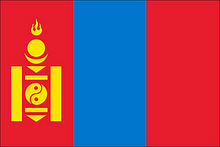
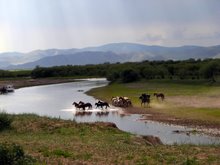
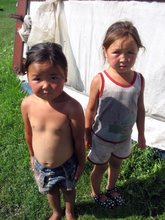
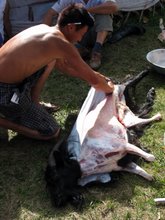
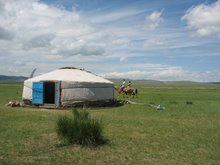

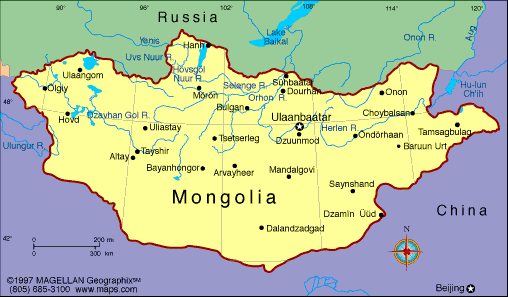
No comments:
Post a Comment